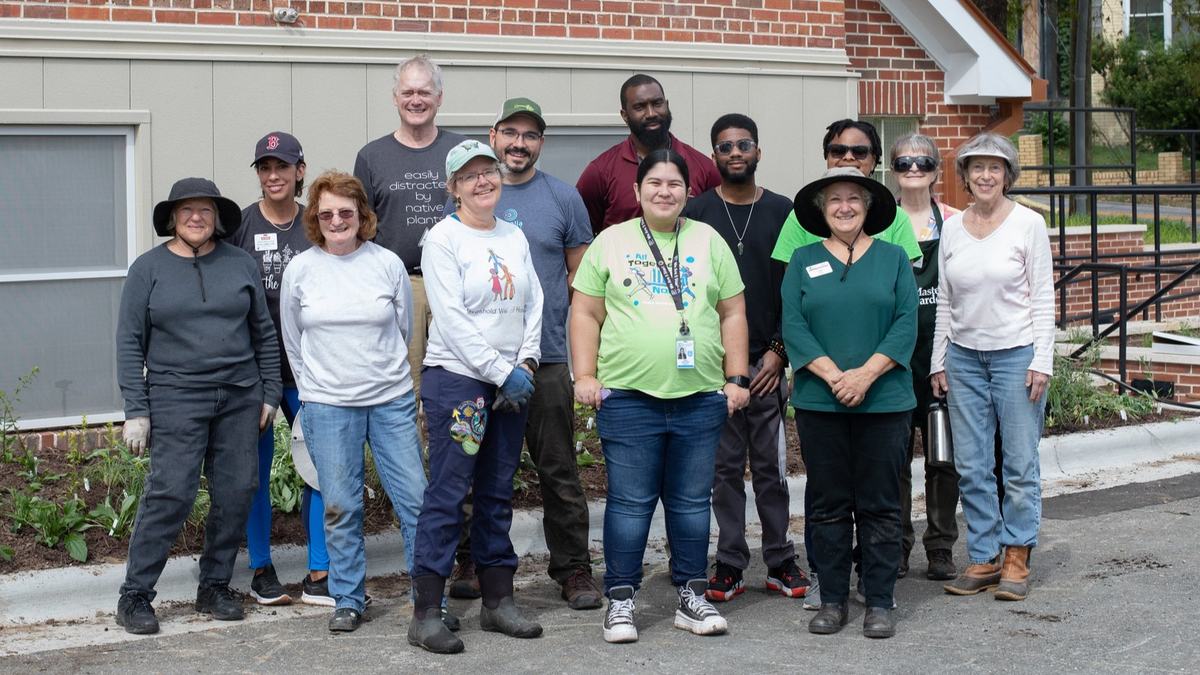
A Historic Setting, New Learning Opportunities
The Stanford L. Warren Library is a cornerstone of Durham's historic Hayti neighborhood. Established in 1913 as the city’s first African American library, its current building was erected in 1939 with a donation from Dr. Stanford L. Warren.
Following extensive renovations in the 2020s to address water intrusion, the library found itself with empty planting beds. What was initially slated for grass became an exciting opportunity to create a warm welcome to the updated building through intentional landscape design.
Recognizing the potential for an ecological space that also serves as an educational experience—a library is the perfect place for learning, after all—Flora O’Brien led an Extension Master Gardener (EMG) team to envision a demonstration garden where Durhamites can learn, grow and share sustainable gardening practices. This garden would showcase locally-adapted, native, low-maintenance plants, aligning with Dr. Douglas Tallamy's "homegrown national parks" concept of creating vital habitats in urban settings.
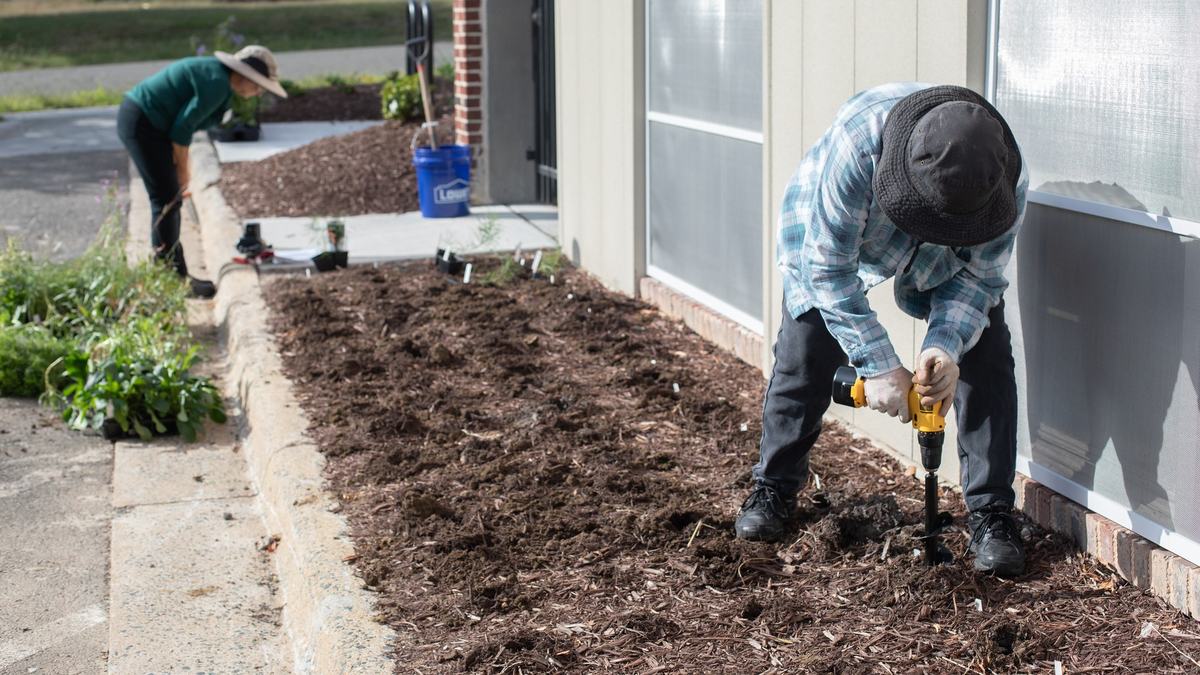
Collaborative Growth: Partnerships and Plantings
The success of this demonstration garden project depended on strong partnerships. The EMG volunteer team collaborated closely with the Stanford L. Warren Library staff, who would eventually manage the garden’s routine needs, and with Dr. Annabel Renwick, Curator of the Blomquist Garden of Native Plants at Sarah P. Duke Gardens. Dr. Renwick's expertise in "Piedmont Prairie" plantings–utilizing locally gathered seeds proven to thrive with minimal watering–was vital to the garden’s longevity. In addition, since the project coincided with the restoration work at the library, permissions and collaboration with on-site engineers and workers were essential.
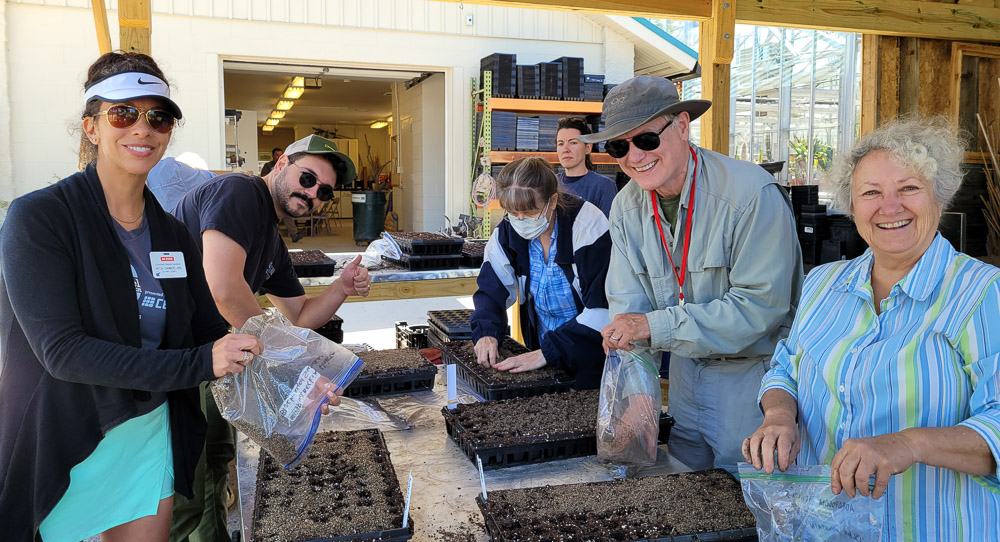
A primary focus of this project was to empower library staff with gardening knowledge and a valuable asset for future educational programming. It also aimed to strengthen EMG volunteers’ ability to disseminate sustainable gardening and partnership-building practices throughout Durham communities.
The project team pursued several key goals for this project:- Create a sustainable garden: Establish a pollinator-friendly native garden that requires very low maintenance and can be used for educational programming for both library staff and EMG volunteers who educate Durham residents.
- Foster collaboration: Build strong working partnerships between local Master Gardener volunteers, library staff and Duke Gardens.
- Share horticultural expertise: Provide Duke Gardens a platform to share their native-planting techniques and locally-sourced seeds.
- Educate Extension professionals and volunteers: Offer hands-on learning and research opportunities for EMG program representatives in both low-maintenance planting and community partnership-building.
From Seed to Sanctuary: The Garden's Development
The project kicked off with a detailed planning session at Duke Gardens, where the team developed a plant list and reviewed propagation methods. EMG volunteers and library staff participated in a seminar on cold moist seed stratification, learning essential techniques for growing native plants from seed. Selected were a diverse range of native plants, many donated by Duke Gardens, including:
- prairie blazing star (Liatris pilosa)
- little bluestem (Schizachyrium scoparium)
- sharp lobe penstemon (Penstemon tenuis)
- old field goldenrod (Solidago nemoralis)
- foxglove beardtongue (Penstemon digitalis)
- white goldenrod (Solidago bicolor)
- Maryland golden aster (Chrysopsis mariana)
- splitbeard bluestem (Andropogon ternarius)
- baby Joe Pye weed (Eutrochium dubium)
- big-headed aster (Symphyotrichum grandiflorum)
- evening primrose (Oenothera fruticosa)
- purple coneflower (Echinacea purpurea)
- butterfly weed (Asclepias tuberosa)
- gaura (Oenothera lindheimeri)
- white wild indigo (Baptisia alba)
- pale evening primrose (Oenothera pallida)
- black-eyed susan (Rudbeckia hirta)
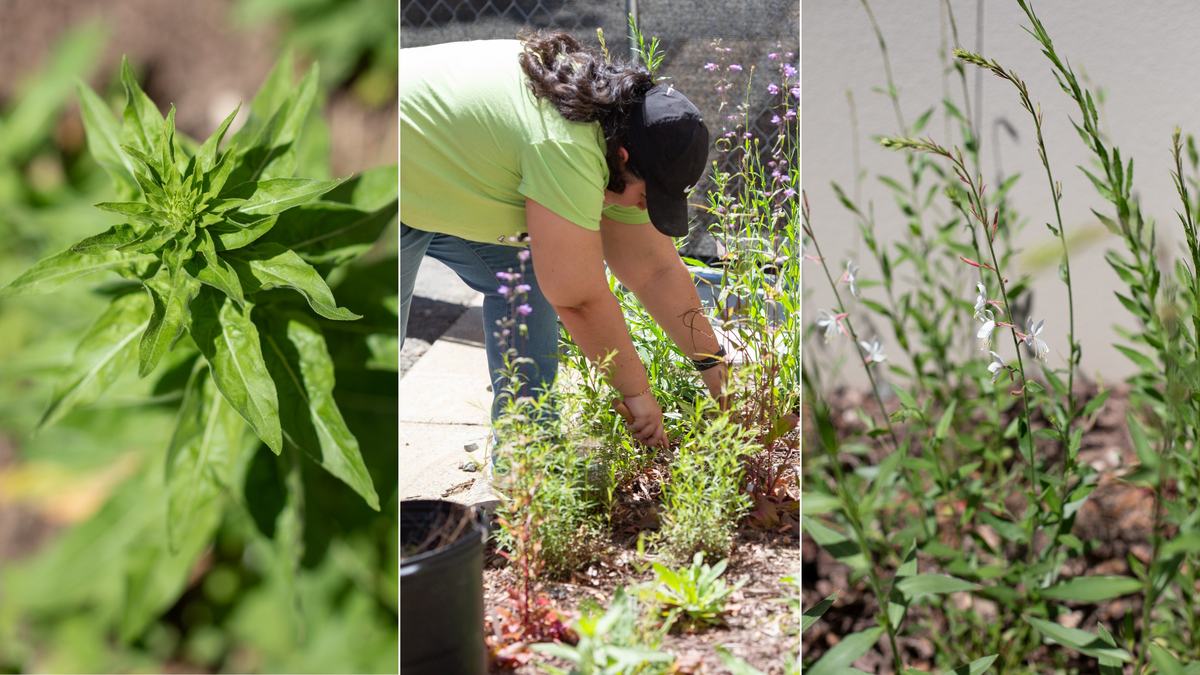
Throughout the spring and summer of 2023, the team meticulously propagated hundreds of plants, with library staff actively involved in potting and repotting. Soil samples were taken to ensure optimal conditions. In October 2023, 409 plants were successfully installed in the three designated planting beds!
The garden thrived over the winter and into 2024, requiring only two weeding sessions from library staff and no additional watering, fertilizer or pesticides. Its overwhelming success led the library to abandon plans for a rose garden, opting instead to expand the native plantings. The team installed educational signage to inform library visitors, and importantly, library staff took over full maintenance of the garden, with plans to integrate it into future programming.Meaningful Impact and Future Growth
The impact of the Stanford L. Warren Library garden has extended beyond its immediate location. The garden remains extremely low-maintenance, and the children's librarian is developing educational programs centered on native plants and pollinators.
Inspired by their success, library staff have begun sharing their enthusiasm with other branches. Larry Daniels, the Branch Manager, assisted the Bragtown Library in establishing a similar garden and plans to create a vegetable and native flower garden adjacent to the Warren Library.
The collaboration with Sarah P. Duke Gardens has also flourished. Dr. Annabel Renwick has presented her native planting techniques to Master Gardener volunteers and the wider gardening community, reaching hundreds of Durhamites. Extra native plants propagated for the library project were distributed for free or sold as fundraisers, furthering conservation goals.
The dedicated Master Gardener volunteer team—Flora O’Brien (leader), Ariyah April, Kat Causey, Wanda Crutchfield, Peter Gilmer, Peter Larsen, Marya McNeish, Jackie Moore, Allie Mullin, Sara Smith and Norma Stanley-Gibby—gained invaluable hands-on experience in propagating, designing and installing native plant gardens. This knowledge has directly informed the design of five additional low-maintenance native gardens in parks across Durham County, with maintenance successfully transitioned to park staff and community volunteers.
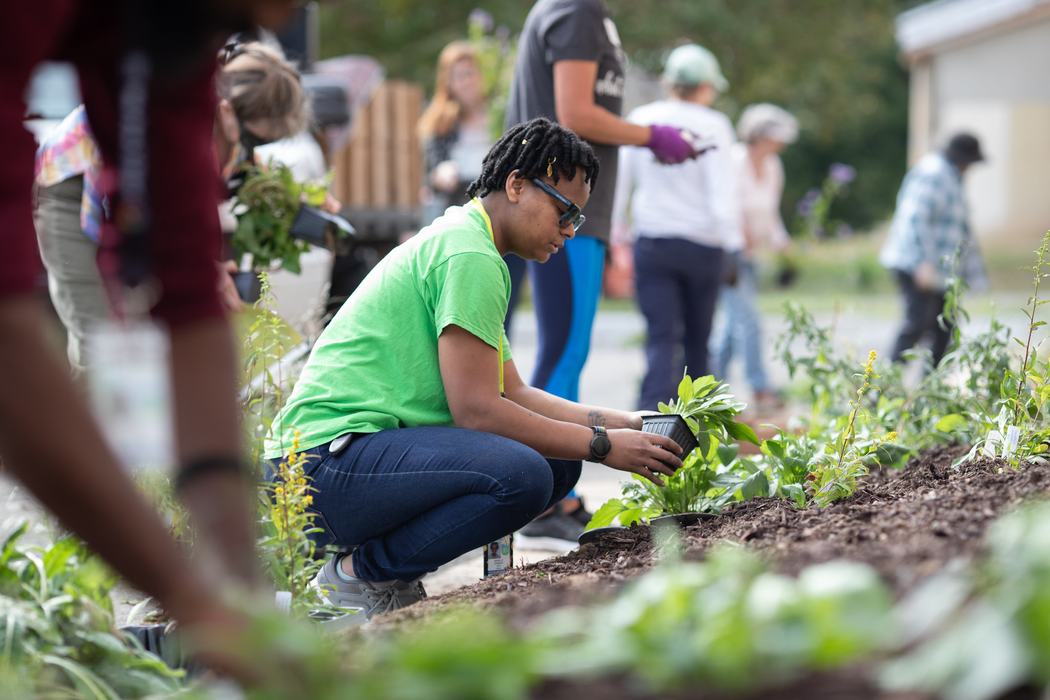
Congratulations Award Winners!
In recognition of their collaboration with community partners to create an exceptional demonstration garden at the Stanford L. Warren Library, Extension Master Gardener volunteers of Durham County were awarded third place in the demonstration garden category of the 2025 David Gibby International Master Gardener Search for Excellence!
The project stood out among a highly competitive and inspiring group. This year, 36 applications were submitted across six award categories by Extension Master Gardener programs from 17 states. Each project was carefully reviewed by a panel of 31 judges, including 12 Extension professionals and 19 Master Gardener volunteers, representing 14 different states. The reviewers were clearly impressed, with one sharing, “Amazing partnership among so many organizations–great work planning and growing all those plants!”
The David Gibby International Master Gardener Search for Excellence is the recognition program for outstanding Master Gardener volunteer work across the United States, Canada, England and South Korea. Held every other year, the awards program invites Master Gardener volunteers to submit educational, group projects that result in significant learning in seven different categories. The program selects first, second and third place recipients in each category.
Award recipients will be recognized during the 2025 International Master Gardener Conference, taking place virtually from August 25-28.